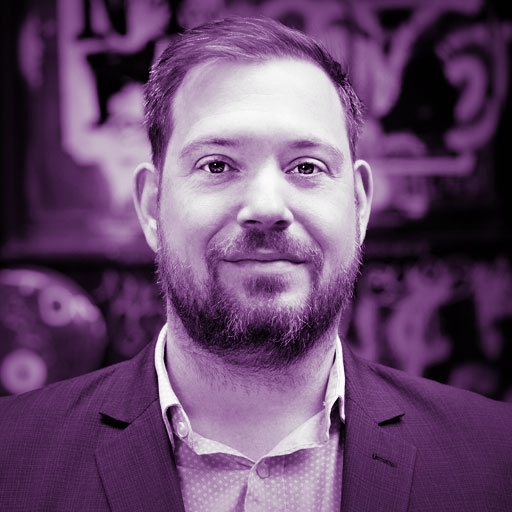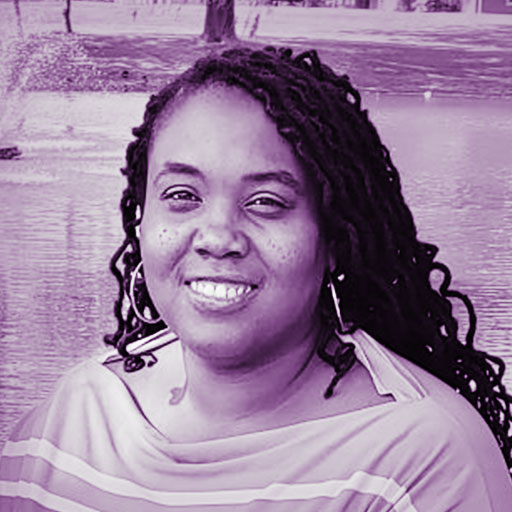Episode 86: The Broken Brown Egg
Infertility and family building can be scary and isolating at times, especially when it seems like no one else around you are experiencing the same barriers to conception. Even as more people come forward to talk about their struggles, there is still a lack of race representation fueling these conversations.
Regina Townsend is the voice behind The Broken Brown Egg; a blog, resource, and community surrounding her experiences with infertility as a Black woman.
Regina was frustrated with society’s outdated health education scaring kids about teen pregnancy and overshadowing important topics like fibroids, endometriosis, and Polycystic Ovary Syndrome (PCOS), which disproportionally affects Black women. Beyond education, she struggled to find Black representation for simple things like wedding planning, let alone infertility.
This episode covers Regina’s family building journey from the beginning. Whether it’s PCOS, In Vitro Fertilization (IVF), or foster care, Regina has been through it all. She reflects on how each struggle has made her stronger, teaching her how to speak up at the doctor’s office, connect with others, and create community through an open dialogue.
Guest: Regina Townsend, The Broken Brown Egg
Host: Dan Bulger
If you’d like to explore The Broken Brown Egg further and get involved with Regina, click here to access her website and resources.
For more information visit Progyny’s Podcast page and Progyny’s Education page for more resources.
Be sure to follow us on Instagram, @ThisisInfertilityPodcast and use the #ThisisInfertility.
Have a question, comment, or want to share your story? Email us at thisisinfertility@progyny.com.
Here are some highlights from this episode:
Gaps in Health Education
6:09-8:10
Regina Townsend: In elementary school, we would have these sex education classes that just talked about how sex equals pregnancy, sex equals disease. Then, there would be daunting statistics about how many teenage pregnancies were in the black community, and how much we needed to make sure that we weren’t going to fall into the stereotype.
It wasn’t a balanced conversation, none of those lessons ever taught about Polycystic Ovary Syndrome, or fibroids, or any of the things that disproportionately affect black people. Nobody thought that that’s something we should have been aware of. And yet, we were constantly told, ‘don’t get pregnant or you won’t be able to go to college.’
There are all these barriers against you already as a black girl and all these things in the way, so you don’t want to add to it.
Blog Beginnings
8:42-11:08
Regina Townsend: I started to try to find blogs and websites and I couldn’t really find any with women of color. One day, I thought I should start a blog about [infertility] and just talk about it. And then I got really frustrated and angry. Why didn’t anybody tell me that [infertility] was a thing? I went on Facebook one day, and I just started posting. And I don’t know who I was angry at, because infertility is private, so, I can’t be too angry that people were keeping these things to themselves. But, I was just going to yell into the void. If somebody needs to talk so that the next person after me doesn’t have to come to this realization in the same way, I’m just going to talk. I started to get people who would send me messages and say, “Thank you for saying that. I appreciate you for wording it that way, I haven’t been able to communicate it.” And, from there, I knew I had to keep talking.
This is what it feels like, and yes, this is happening to a black woman.
The Wrong Doctor
13:33- 18:02
Regina Townsend: I went to the doctor and I told her I was thinking it’s Polycystic Ovary Syndrome. And she laughed. She said ‘Everyone’s got Google these days, and they think they’re the doctor. It’s not Polycystic Ovary Syndrome, you don’t have any cysts. It’s probably your thyroid, and we’re going to get you to lose a little weight.’ She just dismissed it right then and there. And I felt so deflated.
I researched; I didn’t just come in here with some half-cocked ideas. We’re used to listening to [doctors] and feeling like they know what they’re talking about. They’re the doctor.

Host
Dan has been in the healthcare industry for the last six years as a multimedia content producer. Better known as ‘Video Dan’ he as interviewed numerous doctors, patients and other experts in the world of fertility. He’s also the producer for this podcast, This is Infertility. On a personal note Dan’s parents started fostering kids when he was four years old, and he considers himself a proud older brother to over 100 foster children.

Guest
Regina Townsend is the founder of The Broken Brown Egg, an awareness and service organization founded in the summer of 2009 to increase awareness of African American Infertility and Reproductive Health. As a black woman, Regina found a very quiet life in infertility. She believed that should change, so that no one else will have to feel like the lone wolf of their family. Infertility is lonely enough without feeling like a minority inside of a minority.
Regina’s infertility was due to PCOS, Hypothyroidism, blocked fallopian tubes, and Type 2 diabetes. She and her husband dabbled with pill abuse (Clomid), lied to all their family members, “NO, we are NOT nearly ready for children!”, and took a painful trip into parenting purgatory (Foster Care/Kinship Placement). In 2015, they were blessed with the opportunity to try IVF, and had their son in 2016. Librarian by profession and writer by passion, Regina considers writing and reading to be one of the most personal forms of communication, entertainment and education.
Music From This Episode:
Artist: Cellophane Sam
Track: Run Hound
URL: https://freemusicarchive.org/
Artist: Doctor Turtle
Track: I Snost I Lost
URL: https://freemusicarchive.org/
Artist: Kai Engel
Track: Global Warming
URL: https://freemusicarchive.org/
Track: July
URL: https://freemusicarchive.org/
Artist: Josh Woodward
Track: Hollow Grove Instrumental Version
URL: https://freemusicarchive.org/
Artist: Lee Rosevere
Track: All the Answers
URL: https://freemusicarchive.org/
Track: Small Steps
URL: https://freemusicarchive.org/
Artist: Jahzzar
Track: Sleepin
URL: https://freemusicarchive.org/
Artist: Steve Combs
Track: Symphony No 1 II Truth
URL: https://freemusicarchive.org/
Track: To Move an Inch
URL: https://freemusicarchive.org/



